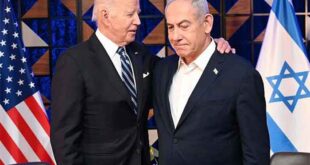The EU Enlargement Commissioner, Stefan Fuele, on Wednesday paid an unannounced visit to Macedonia, where he apparently urged leaders to resolve the ongoing political crisis and focus on the EU agenda.Commissioner Fuele met President Gjorge Ivanov, the Prime Minister, Nikola Gruevski and the opposition Social Democrat leader, Branko Crvenkovski, but the contents of their conversations have not been divulged and no statements were issued.
An unnamed source from the government told MIA news agency that Gruevski and Fuele discussed “the upcoming [EU] progress report on Macedonia and the June summit of the European Union” as well as “the Euro-agenda and reforms, including recent developments in relation to the opposition boycott [of parliament]”.
Macedonian diplomatic sources told Balkan Insight that Fuele urged all the political leaders to end their current feuds and focus on the country’s European agenda, so that Macedonia can retain its positive evaluation in the next European Commission report, due in spring.
Fuele’s visit follows a recent statement by the EU Council, which said that any decision on opening accession talks for Macedonia would be based on the next report of the European Commission.
The report will assess whether Macedonia has taken real steps towards reaching a deal with Greece over its name, to which Greece objects, has improved relations with Bulgaria and has carried out reforms at home.
The visit comes in the middle of a political crisis that some fear could derail Macedonia’s EU agenda entirely.
The crisis erupted on December 24, when government parties passed a budget for 2013 in only minutes, after opposition MPs were kicked out of parliament.
The day saw a tense stand-off in Skopje between several thousand pro- and anti-government protesters, separated by a police cordon.
Opposition MPs have since quit parliament, while their supporters have staged acts of civil disobedience against the government, including blocking roads. They demand early general elections along with the local polls in March as well as resignations of key ministers.
The government has so far refused to sack any ministers, or call early general elections
 Eurasia Press & News
Eurasia Press & News



